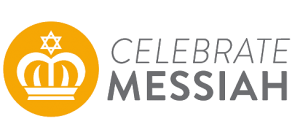A Call for Spiritual Maturity
Hebrews 6:1-3
Hebrews 6:1-3
In our last study, the writer of Hebrews spoke about how these Jewish believers were not spiritually mature enough to receive deep, meaty teaching regarding the Melchizedekian priesthood of Yeshua the Messiah. He then moves on, in Hebrews 6:1, to the thought that it was clearly now time for them to mature. He says they should be “leaving the elementary teaching about the Messiah and press on to maturity.” The elementary teaching about the Messiah, in this context refers to Jesus’ earthly ministry, His birth, life, teaching, death, burial, and resurrection as understood through the Old Testament. The understanding of His ministry as our Great High Priest is what these Jewish believers needed to mature into.
There is some finality in the Greek word, aphiemi, translated “leaving.” It refers to total detachment, to depart, to put off. In the Expositors Greek Testament, in Hebrews 6:1, the clause is translated, “let us abandon (give up) the elementary teaching about Christ.” As the writer of Hebrews is dealing with the issue of these Jewish believers desiring to go back to the sacrificial system, he describes, in verse 2, what it is they are supposed to be leaving. He says, “not laying again a foundation,” which would be going back to the basics of Old Testament teaching regarding the Messiah. They are called to go beyond these basics and press on to maturity. He then describes this foundation with the following details:
“Repentance from dead works and of faith toward God” – The dead works the writer of Hebrews is referring to is the system of sacrifices designed to point people to the Messiah. The Old Testament practices presented a faith in God by coming to Him through the sacrifices. Rather, we ought to approach Him through Messiah as our High Priest. What is most important about this basic truth is that when we repent we need to leave one thing and turn to another, which the writer says is the Messiah.
“Of instruction about washings and the laying on of hands” – Every Jewish believer understood the importance of the mikvah bath. Virtually every Jewish home would have a basin by the entrance to use for ceremonial washings. There were ritual washings for many different purposes, and these Jewish believers were apparently desirous of these things which were again only shadows pointing to Messiah. They had the reality of Messiah and needed to move on from the pictures. The laying on of hands was another description of the sacrifices where the man making the sacrifice would lay hands on the animal, confess his sin, and identify with the animal being sacrificed as it was, in effect, taking his place on the altar.
“And the resurrection of the dead and eternal judgment” – The Old Testament doctrine of resurrection and eternal judgment is not clear and is incomplete without the New Testament teaching of what Jesus accomplished. One of my favorite verses regarding this subject is John 11:25-26, “I am the resurrection and the life. He who believes in Me, though he may die, he shall live. And whoever lives and believes in Me shall never die.”
Hebrews 6:3 is a transition to the next section (6:4-8), which we’ll cover next month—the question of what happens to these believers if they don’t listen. This upcoming study is a very controversial and divisive section of Scripture. Ray Stedman, a great pastor and Bible commentator of the 20th century, said this about it: “The knottiest problem passage in Hebrews, if not the whole Bible; a passage which has been a battleground…for ages.”
Ultimately I believe the key to understanding it is looking at the context. Jewish believers were wavering in their faith because of persecution from secular society, and pressure from their own families and traditional Jewish teaching. The writer of Hebrews was trying to intervene on their behalf. Some things seem never to change.
Sign up for Celebrate Messiah email newsletters to receive more information on our ministries, events, and outreach to the Jewish people around the world:

 A Problem of Spiritual Maturity
A Problem of Spiritual Maturity